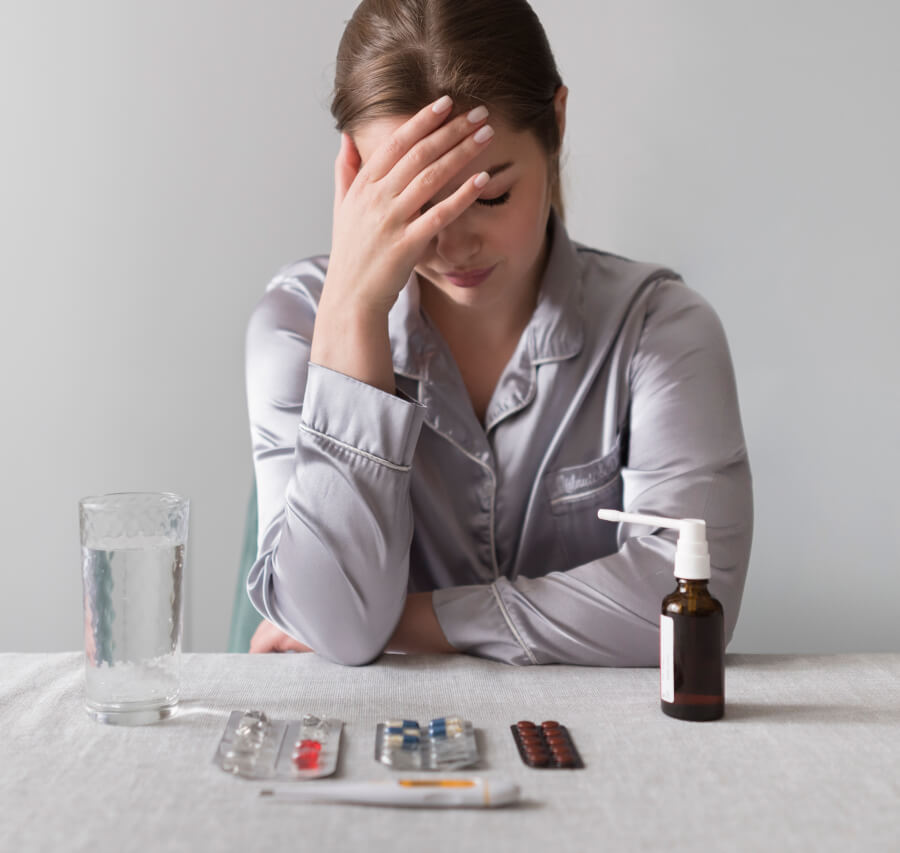SUD is a condition that affects millions of people around the world, and it can have serious consequences for their physical, mental, and social well-being.
But what exactly is it, and how can it be recognized and treated?
Substance use disorder (SUD) is a term that describes a problematic pattern of substance use that causes significant distress or impairment in a person’s life.
A substance can be any drug that has the potential to cause addiction, such as alcohol, tobacco, cannabis, opioids, stimulants, hallucinogens, or inhalants.
SUD can affect various aspects of a person’s life, such as their health, relationships, work, school, or legal status.
It can also increase the risk of developing other mental health disorders, such as depression, anxiety, or psychosis.
What are the symptoms of SUD?
The symptoms can vary depending on the type, amount, and frequency of substance use, as well as the person’s individual characteristics and circumstances.
However, some common signs and symptoms of SUD include:
- Feeling a strong urge or craving to use the substance
- Having difficulty controlling or reducing the substance use
- Spending a lot of time and money obtaining, using, or recovering from the substance
- Experiencing withdrawal symptoms when stopping or reducing the substance use, such as nausea, sweating, shaking, or anxiety
Developing tolerance to the substance, meaning needing more of it to achieve the same effect
Continuing to use the substance despite knowing the negative consequences or harms it causes
Neglecting or giving up other important activities or obligations because of the substance use
Engaging in risky or illegal behaviors to obtain or use the substance, such as driving under the influence, stealing, or lying
Having problems in interpersonal relationships because of the substance use, such as conflicts, arguments, or isolation
SUD can be classified into mild, moderate, or severe, depending on the number and severity of the symptoms. A person can also have more than one SUD at the same time, involving different substances.
What are the causes of SUD?
Substance Use Disorder is a complex and multifactorial condition that results from the interaction of biological, psychological, social, and environmental factors.
Some of the factors that can contribute to the development of SUD are:
Genetic factors
Some people may have a genetic predisposition or vulnerability to SUD, meaning they inherit certain genes that affect how their brain responds to substances or how they cope with stress or emotions.
Neurobiological factors
Substances can alter the brain’s chemistry and functioning, especially the reward system, which is responsible for producing feelings of pleasure, motivation, and learning.
Substances can stimulate the release of dopamine, a neurotransmitter that is associated with reward, and create a positive reinforcement for the substance use.
Over time, the brain can adapt to the substance use and reduce its natural production of dopamine, leading to tolerance, dependence, and withdrawal.
Psychological factors
Some people may use substances as a way of coping with negative emotions, such as stress, anxiety, depression, anger, or boredom.
Substances can provide a temporary relief or escape from these feelings, but they can also worsen them in the long run.
Some people may also have low self-esteem, poor impulse control, or distorted cognitions that influence their substance use.
Social factors
Some people may be influenced by their peers, family, or culture to use substances, either to fit in, to conform, or to rebel. Some people may also face social pressures, such as discrimination, stigma, or violence, that increase their substance use.
Some people may also lack social support, such as friends, family, or community, that can help them cope with their problems or challenges.
Environmental factors:
Some people may be exposed to substances at an early age, either through their parents, siblings, or friends, and learn to associate them with positive or negative outcomes.
Some people may also have easy access to substances, either through legal or illegal sources, and have more opportunities to use them.
Some people may also live in environments that are stressful, chaotic, or deprived, and use substances to cope or survive.
How can SUD be treated?
Substance Use Disorder is a treatable condition that requires a comprehensive and individualized approach that addresses the biological, psychological, social, and environmental aspects of the problem.
Treatment can involve different types of interventions, such as:
Medication
Some medications can help reduce the cravings, withdrawal symptoms, or effects of substances, and facilitate the recovery process.
For example, methadone, buprenorphine, and naltrexone are medications that can help treat opioid use disorder, while nicotine patches, gums, or lozenges can help treat tobacco use disorder.
However, medication alone is not enough to treat SUD, and it should be combined with other forms of therapy.
Psychotherapy
Psychotherapy is a type of counseling that can help a person understand the causes and consequences of their substance use, and develop skills and strategies to cope with their emotions, thoughts, and behaviors.
Psychotherapy can also help a person identify and modify their triggers, motivations, and goals for substance use, and enhance their self-esteem, self-efficacy, and resilience.
Some of the common types of psychotherapy for SUD are:
- Cognitive-behavioral therapy (CBT)
- Motivational interviewing (MI)
- Contingency management (CM)
- Relapse prevention (RP).
Support groups
Support groups are groups of people who share similar experiences and challenges with substance use, and who provide mutual support, encouragement, and guidance to each other.
Support groups can help a person feel less alone, isolated, or stigmatized, and more connected, understood, and empowered.
Support groups can also offer practical tips, resources, and referrals to help a person with their recovery.
Some of the well-known support groups for SUD are Alcoholics Anonymous (AA), Narcotics Anonymous (NA), and SMART Recovery.
Rehabilitation programs
Rehabilitation programs are structured and intensive programs that offer a range of services and interventions to help a person with SUD.
Rehabilitation programs can be residential or outpatient, depending on the level of care and supervision needed.
Rehabilitation programs can include medical, psychological, social, and educational components, such as detoxification, medication, psychotherapy, support groups, case management, vocational training, and aftercare.
Conclusion
Substance Use Disorder is a serious and complex condition that affects many people around the world.
It can have negative impacts on a person’s physical, mental, and social well-being.
However, SUD is treatable, and there are various options and resources available to help a person with SUD.
If you or someone you know is struggling with SUD, do not hesitate to seek help from a qualified professional, such as a doctor, a therapist, or a counselor. You are not alone, and you can recover from SUD.
FAQs
What are the most common symptoms of Substance Use Disorder (SUD)?
Common symptoms of SUD include craving the substance, loss of control over its use, neglecting responsibilities, and experiencing withdrawal symptoms when not using the substance.
Which substances can cause Substance Use Disorder (SUD)?
SUD can develop with various substances including alcohol, opioids (such as heroin and prescription painkillers), stimulants (like cocaine and methamphetamine), and sedatives (such as benzodiazepines).
What is the difference between substance abuse and substance use disorder?
Substance abuse refers to using a substance in a way that is harmful or hazardous to health or functioning, while substance use disorder is a clinical diagnosis characterized by a pattern of problematic substance use leading to clinically significant impairment or distress.
How is Substance Use Disorder (SUD) diagnosed?
SUD is diagnosed through a comprehensive assessment by a healthcare professional, which may include a physical exam, psychological evaluation, and screening tools like the DSM-5 criteria.
What treatment options are available for Substance Use Disorder (SUD)?
Treatment options for SUD may include medication-assisted therapy, behavioral therapies (such as cognitive-behavioral therapy), support groups (like Alcoholics Anonymous or Narcotics Anonymous), and residential or outpatient rehabilitation programs.
What steps can I take if I suspect that I or someone I know is struggling with Substance Use Disorder (SUD)?
If you suspect SUD, it’s essential to seek help from a healthcare professional or addiction specialist.
Encourage open communication, offer support without judgment, and explore treatment options together. Additionally, consider reaching out to support groups or helplines for guidance and resources.





